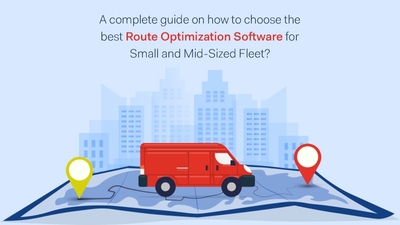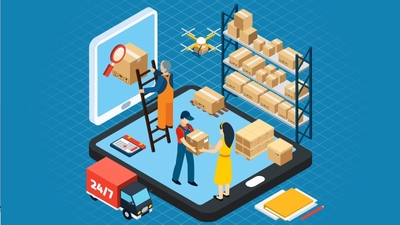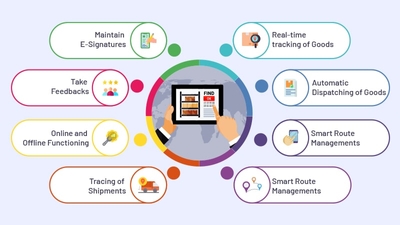The entire product journey from the shelf of a warehouse to the customer’s doorstep is defined as the ‘Last Mile’. A rather practical way to understand this is to consider it as a final step in the delivery system.
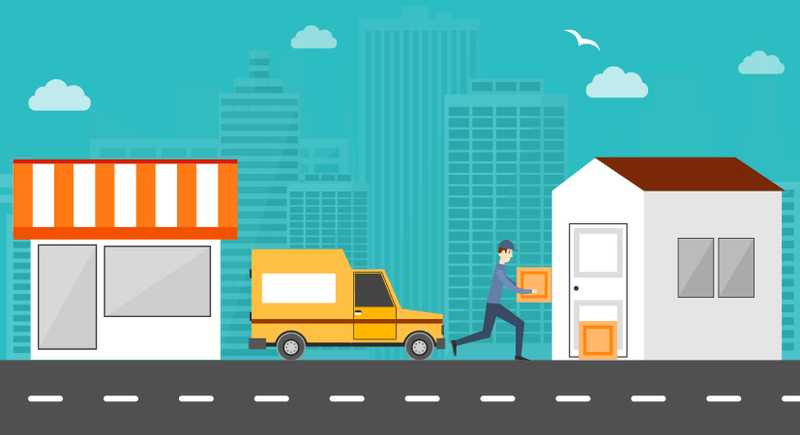
This is the step where a customer receives the package. And, with time, eCommerce retailers are understanding the importance and value of the last mile.
It’s a rather ‘must-have’ for every eCommerce retailer as it may get difficult for the business to meet customer demands while creating a difference.
With real-time updates almost mandatory to survive in thriving competition, the problem was ‘out for delivery’ status which felt like an eternity in the majority of the deliveries.
One of the main reasons is associated with low drop sizes while approaching the last stop.
Here’s a classic case: two deliveries in rural areas in different directions. The far-off distance between the two drop-off points may lead to delays and thereby limiting the value that retailers look to create for the customers.
On the contrary, metros may have many orders but traffic congestion can become an issue.
Such scenarios will have traffic congestion between two stops is almost as ugly as the stop proximity in rural areas.
As far as the customers are concerned, 68% of eCommerce buyers expect the delivery at their doorstep while one-quarter are willing to pay extra for the same-day delivery.
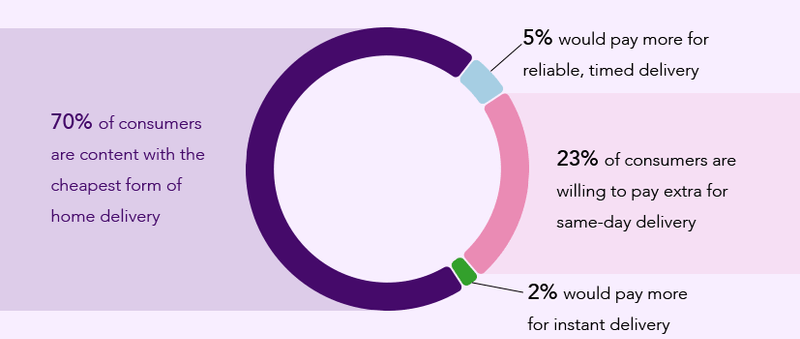
Logistics companies need to be on their toes to face such unforeseen hazards involved in deliveries.
Bring in the last mile delivery here and see how the products are delivered with utmost efficiency. Such a change is also in sync with the customers’ interest in on-demand services.
They are willing to a little extra for something like ‘same-day delivery’. If they are getting their deliveries faster, they are preferring that.
And this is the reason why eCommerce big companies like FedEx, Amazon, and UPS thrived to master the art of last mile logistics as a way of customer experience.
The only way to achieve such efficiency is to involve retail delivery solutions by breaking the departmental silos within the organisation.
Stirring the conventional delivery mechanisms will require a plethora of interventions in the retail delivery system. One way to achieve this includes on-demand retail app development.

Relying on last mile delivery solution
For customers to feel special, the control should be given in their hands. Retailers can ideally opt for last mile delivery management software directly integrated into their eCommerce retail store.
Delivery solutions for retailers include the use of logistics solution which can do the following:
- Enabling seamless multiple business processes integration throughout the product range.
- Retail solution boasting Data science for providing near to precise delivery time.
- An integrated retail delivery system with enabled real-time statistics.
- Offering a scalable yet faster to the eCommerce store to stay in the top of the competition.
Therefore, one way to meet the last mile expectations of the customers eCommerce retailers need to embed modern retail delivery solutions to go extra mile for bettering customer experience.
The crux of the whole delivery-based business lies in what and how the customer perceives the delivery as received.
This is the result and it something that matters the most of the customers, giving eCommerce retailers the first-hand customer experience data.
It also a fact that the one who is closest to the customers wins the last mile delivery race and creates a disruption. And here’s is how it is important for providing a better customer experience.
Giving customers the power to choose
The last mile retail delivery solution helps customers to choose how they like to receive a certain product and at what time.
If the receiver is unavailable, then s/he can contact the shipment company and fix a schedule pick up based on time and space.
On the hand, it provides retailers with a cost-effective and flexible way to shrink the standalone pickup burden based on varying locations.
Improving operational scalability
This is required during the holidays and mega sales where there are more orders to fulfil while local shipping traders may not be available everywhere.
To ensure this does not affect the capacity and speed of shipping, retail delivery system ropes in the third party as well.
This helps them to boost the large quantity deliverables without compromising on the quality of delivery.
Bettering parcel auditing with the last mile
Companies carrying out parcels in large bulks are always looking to reduce operational costs associated with the last mile delivery integration.
And online retailers’ delivery software plays a major role in assembling the parcels and ensuring that it reaches to customers just how they expect it.
With parcel auditing, companies can expect timely delivery to customers without ant goof-ups.
Read More: Catalyze your courier business growth with Fixlastmile.
The fast, flexible and free delivery
Ecommerce giants like Amazon have spoiled customers to get into the same-day delivery concept.
This means, even retailers will need to fight for their space with these giants by offering a flexible, free and almost-instant delivery.
The customers are expecting deliveries to come by sooner and these expectations keep getting shorter in time with increasing competition.
And as discussed above, customers expect a lot of flexibility in receiving the packages – home delivery, nearby pick-ups, drop-in time, etc.
Consider how Amazon took the first step to introduce the access code for delivery drop-off.
It lets the delivery person have an access code which is entered at a customer’s home for the drop-off to confirm the delivery.
This is key to winning customers hearts. Even UPS came up with the network of Access Point locations in the US from the UPS Stores to local convenience stores.
When a customer is not available at home but also do not want to risk the package unattended can opt from the range of such delivery sites to retrieve it as per their convenience.
Offering such options is the key to customer satisfaction which goes beyond just the product features.
Giving them the option to re-route the delivery is another way to offer delivery assistance if there are any last-minute changes from the customer’s end.
Updating the anticipation period
On-demand retail app development can reflect the real-time data of package in transit – right from order placement to tracking delivery route.
Providing customers with all the step by step information is important to keep them hooked while also ensuring that their order is being processed.
It is something that can excite the customers and keep them in the know-how regarding the delivery.
Proactive customer engagement is one way to retain the customer and keep them coming for more.
Logistics at the backend needs to stay updated so that the wrong information is not communicated.
Suppose the delivery is expected later but showing it early can shake the trust they are putting on the retailer.
It is therefore highly recommended for eCommerce retailers to invest in a comprehensive retail delivery solution that buyers can have access to – real-time. Having such platforms help to push live updates regarding the shipment process.
Retailers can simply not ignore the staggering 73% of customers who emphasise on the delivery messages an important factor. And such crucial status notifications are a part of evolved eCommerce delivery solutions.
Later on, putting up a nominal charge on sending such updates can also work as an additional revenue stream. Or perhaps, keeping it exclusive to the premium customers help to build loyalty.
Conclusion
This is the time when eCommerce retailers can leverage the supply chain to add value to their proposition.
Leveraging available last mile delivery solution can also facilitate modern day warehouses to slot the deliveries based on the available batches and delivery time-stamps if the need be.
Putting such innovations to use can also help to address and exceed the customers’ expectations.
Failing to jump into the transforming retail eCommerce landscape may jeopardise businesses in the longer run. And that is investing in a good last mile delivery software is the wise way to sustain and grow the business.


